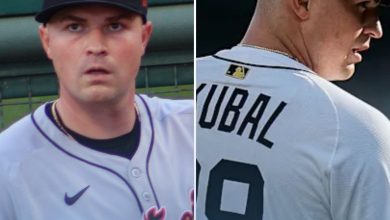The Truth About Willie Nelson and the Draft: What Really Happened During His Military Years. ML
Some rumors are just too stubborn to die, and the one claiming Willie Nelson dodged the draft is one of them.
The truth is this. Willie Nelson did serve in the military. In 1950, right after graduating from Abbott High School, he enlisted in the United States Air Force and was stationed at Lackland Air Force Base in San Antonio, Texas. His time in uniform was short-lived, not because he chose to run from duty, but because his service was cut short due to chronic back problems. He was medically discharged after around nine months of active duty.
This discharge came during the Korean War. So yes, the stakes were high, and no, Nelson did not hide from them. His military record is well-documented, and his short stint was not by choice. The idea that he somehow avoided the draft is not just wrong but is also downright disrespectful to the path he walked, both in and out of uniform.
Nelson’s anti-war stance, which became more public during the Vietnam War era, has only added fuel to the false narrative. However, those who dig deeper find a man whose love for his country and his support for veterans run deep. His 1968 song “Jimmy’s Road,” for instance, was written as a direct reaction to his bandmate David Zettner being drafted. It was not some hollow protest track but a deeply personal ballad that reflected the emotional toll war takes on soldiers.
When the Gulf War came around in 1991, Nelson once again offered “Jimmy’s Road” along with a recording of Mark Twain’s “The War Prayer” to anyone who sent him a blank cassette tape. That is the kind of quiet protest he is known for, not flashy and not self-serving but heartfelt and thoughtful. This is a man who knows what it means to serve and to watch others go off and do the same.
But Nelson’s dedication to those in uniform did not stop at music. In 1985, alongside John Mellencamp and Neil Young, he co-founded Farm Aid. What started as a benefit concert turned into a full-blown movement that has raised over eighty-five million dollars to support family farmers. Among those helped are veteran farmers through partnerships with the Farmer Veteran Coalition. Since 2009, Farm Aid has provided training, business planning, and legal support to veterans looking to transition into sustainable agriculture.
There is a reason Willie was able to connect with that rural, working-class struggle. Before he was a star, he picked cotton and pulled corn as a kid. That work ethic and connection to the land stayed with him. He has always stood with the underdog, and his efforts for veterans prove it is not just talk.
Even in his later years, Nelson has remained a vocal advocate for veterans’ medical care and support systems. He has worked with organizations such as Operation Firing for Effect and supported causes that push for better treatment of service members after they return home. Whether it is performing free at benefit concerts or refusing to cash in on political activism, he has never made it about himself.
So when people throw around the term “draft dodger” in reference to Willie Nelson, they are not just getting it wrong. They are ignoring decades of proof that show the exact opposite. Nelson may have only served a short time in uniform, but he has spent a lifetime serving his fellow Americans in far more meaningful ways than many who wore the uniform longer.
The man is not just a music legend. He is a veteran. He is an activist. And he is a patriot who never needed to wave a flag to prove it. Willie Nelson’s story is not about evading duty. It is about answering the call and continuing to answer it every day since.


